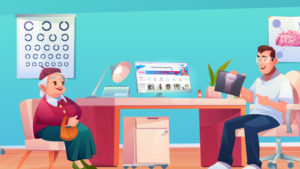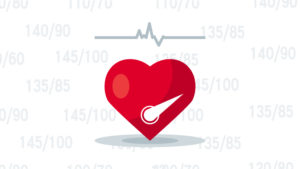When it comes to illnesses and health concerns, it’s safe to say that we put our faith in doctors. But second opinion is key.
Does that faith need to be blind faith?
Doctors are humans, which means that they can be wrong or make mistakes. And as brilliant as they are, we cannot expect each of them to have all the answers to our health problems. That is why it makes sense to ask for a second opinion.
You may think that asking for one would be disrespectful to your doctor and make it seem like you’re being difficult. However, on the contrary, asking for a second opinion is your right as a patient, and more importantly, it gives you as much information as possible about your health.
Why You Should Get a Second Opinion
The field of medicine and pathology is as vast as it’s complicated.
Since many diseases share similar symptoms and tests are open to interpretation, doctors can misdiagnose their patients’ illnesses.
According to a Harvard University study in 2013, India witnesses approximately 52 lakh injuries due to medical error every year.Medical errors are preventable adverse effects that arise due to medical care.
Furthermore, it’s not just about accepting that doctors can be wrong, it’s also important to understand that different doctors can have different views on the optimal mode of treatment. Some doctors have more aggressive strategies to deal with underlying conditions, while others are conservative. And with the constant evolution of medical science, there’s always the possibility of a new treatment method.
A second opinion from a different doctor will help you confirm your diagnosis, identify your treatment options, prevent avoidable adversities, and give you the reassurance you need to make the best decision.
When You Should Get a Second Opinion
Asking for a second opinion is about seeking more information to decide on the best care. It’s not necessary to get one for every health issue, however, there are certain cases in which getting it should be your protocol.
Here are circumstances in which it’s critical to get a second opinion:
- If your symptoms persist after receiving treatment.
While most doctors offer contingency plans when prescribing medication, it’s beneficial to confirm the diagnosis with another doctor before your symptoms intensify. - If you are diagnosed with a rare disease.
Due to their low occurrence rates, there is very little research to back up diagnoses for rare diseases. It’s beneficial to reconfirm the diagnosis before you start looking at expensive treatment options. - If you are diagnosed with a life-threatening or terminal illness.
Life-threatening and terminal illnesses, like heart disease and cancer, impact much more than just our medical decisions. It’s highly advisable to get a second opinion before you accept the diagnosis or break the news to family and friends. - If you are recommended treatment that is experimental or risky.
Before you undergo risky surgery or experimental treatment, get a second opinion of whether that is the best course of action. Sometimes, there is a simpler answer.
Essentially, it’s advisable to seek a second opinion when you’re faced with a diagnosis or treatment that involves considerable risk. If there is a lot to lose, consider how much you could save if the diagnosis is wrong.
How You Should Get a Second Opinion
To determine how you should get a second opinion, you need to consider why you want one. You will need to be honest about the reason and ask your doctor to transfer your medical records to the other doctor you’re consulting.
Additionally, while finding another doctor, it is helpful to look at doctors who specialize in areas that concern your diagnosed condition.
And nowadays, that is easily possible with online consultation platforms like Docty. They make consultations with the best specialists easy and accessible.
However, you must understand that second opinions aren’t necessarily correct. Sometimes, it could take more than a third opinion to accurately confirm a diagnosis or find an ideal treatment plan.
That said, getting at least a second opinion is vital for making a well-informed decision. Doctors are professionals, but ultimately, it’s your call. So, leverage all the help you can get from reliable sources.
Looking for a portal to reliably consult doctors online? Check out Docty and address your concerns today.




